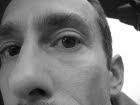Every year edge.org asks prominent people to answer a question- this year's question was 'WHAT IS YOUR DANGEROUS IDEA?
The history of science is replete with discoveries that were considered socially, morally, or emotionally dangerous in their time; the Copernican and Darwinian revolutions are the most obvious. What is your dangerous idea? An idea you think about (not necessarily one you originated) that is dangerous not because it is assumed to be false, but because it might be true?'
That is, what thoughts does one have that seem to be heretical, the things that one dare not speak out loud, for fear of ostracism or professional criticism, &c.
Unfortunately, the link goes directly to the index page, but I urge you to browse through all of the essays; they are all wonderful, in their own way. It's certainly food for thought, whether you agree with an individual author or not.
The self is a conceptual chimera. Doubt that a supernatural being exists is banal, but the more radical doubt that we exist, at least as anything more than nominal, marginally integrated entities having convenient labels like "Myrtle" and "Oscar," is my candidate for Dangerous Idea. This is, of course, Hume's idea — and Buddha's as well — that the self is an ever-changing collection of beliefs, perceptions, and attitudes, that it is not an essential and persistent entity, but rather a conceptual chimera. If this belief ever became widely and viscerally felt throughout a society — whether because of advances in neurobiology, cognitive science, philosophical insights, or whatever — its effects on that society would be incalculable. (Or so this assemblage of beliefs, perceptions, and attitudes sometimes thinks.) excerpt from John Allen Paulos' 'dangerous question'.
Saturday, January 14, 2006
Subscribe to:
Post Comments (Atom)

No comments:
Post a Comment